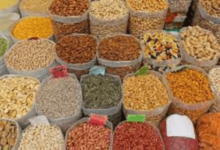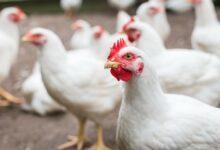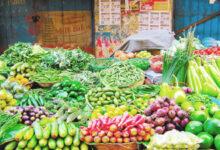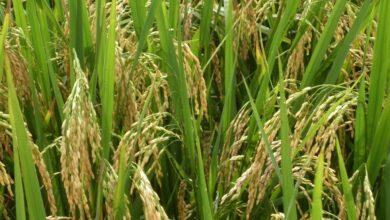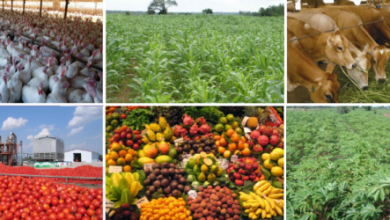
10 Factors Affecting Livestock Production in Nigeria
Factors Affecting Livestock Production in Nigeria – Livestock production in Nigeria is a vital aspect of the agricultural industry as it provides food, income, employment, and a good standard of living for many people. The country has a wide variety of livestock, including goats, cattle, sheep, pigs, and poultry. In Nigeria, Livestock production is mostly based on traditional systems of extensive grazing, with very few inputs such as feed or veterinary care. However, as its population increases, urbanization occurs and food habits change, there is a shift towards a more intensive and semi-intensive system of livestock production.
Read Also: 10 Factors Affecting Decision Making in Nigeria
👉 Relocate to Canada Today!
Live, Study and Work in Canada. No Payment is Required! Hurry Now click here to Apply >> Immigrate to CanadaWhat Is Livestock?
Livestock refers to domesticated animals that are raised for food, fiber, or other products. It includes a wide range of animals which includes but is not limited to pigs, sheep, cattle, goats, fish, and poultry. Livestock can be raised for eggs, wool, hides, meat, milk, and other products. Factors Affecting Livestock Production in Nigeria
What is Livestock Production?
Livestock production is the process of caring for and raising domestic animals to produce food or other products. Livestock production may occur in many forms, from family operations to industrial farms.
Methods Of Livestock Production In Nigeria
There are several methods of livestock production in Nigeria, which include:
- Extensive grazing: This involves free-range grazing of animals on natural pasture, with little feed or veterinary care. This method is mostly used for cattle, sheep, and goats, and it’s common in the North due to the vast array of land available for grazing.Nnamani to Obi: Follow Tinubu for a New Nigeria
- Semi-intensive system: This system involves the use of improved pasture, feed, and veterinary care to enhance productivity. It is mostly used for poultry farms and fish farming.
- Intensive system: This is a capital-intensive method of livestock production that entails the use of high-quality feed, and high-quality veterinary care to achieve maximum productivity. This is mostly done in the south and is common in pig farming.
Read Also: Factors Influencing Nigeria’s Demand for Goods and Services
Benefits of Livestock Production In Nigeria
There are several benefits of livestock production, which include:
- Provision of Food security: Livestock production serves as a major source of protein and other nutrients for human consumption.
- Income generation: Livestock production also serves as an important source of income for lots of individuals around the world, especially in rural communities.
- Fosters Economic Development: Livestock production is a vital part of the agricultural industry that contributes to economic development by providing income, food, and employment in society.
- Enhances Social benefits: Livestock production also provides several social benefits, such as improving food security, serving as a source of income, and preserving traditional practices. Romantic Love Messages
- Revenue from Export: Livestock production provides an opportunity for countries to export animal products and this contributes to economic development.Good Morning Love Message
Environmental Issues in Live Stock Production
There are several environmental issues associated with livestock production in Nigeria. Some of them are outlined as follows: Information Guide Nigeria
- Water pollution: Livestock waste contributes to water pollution, this is more in intensive production systems where waste is managed properly.
- Soil degradation: Improper management of pasture can lead to soil degradation, and this makes it difficult for vegetation to grow.
- Animal welfare issues: Poor living conditions and inadequate care for animals can lead to animal welfare issues.Man United injury update: Raphael Varane, Scott McTominay and Alejandro Garnacho latest news and return dates
- Disease transmission: Poor living conditions and lack of proper disease control measures also result in the transmission of diseases from animals to humans.
Read Also: 11 Factors Affecting Local Government Finance in Nigeria
History of Livestock Production in Nigeria
The history of livestock production in Nigeria is varied and has evolved with different systems and practices.
👉 Relocate to Canada Today!
Live, Study and Work in Canada. No Payment is Required! Hurry Now click here to Apply >> Immigrate to CanadaThe Pre-colonial era had traditional systems of livestock production, with cattle, sheep, and goats being the most important animals. These animals were raised through extensive grazing and were considered a sign of prestige and affluence. During the colonial era, the British government introduced new production methods like ranching. Ranching was first introduced in the early 20th century in the southwestern part of the country with the sole aim to boost the production of meat and other dairy products. After independence, the government tried modernizing the livestock sector, including the development of feedlots, and facilitated the importing of new livestock breeds. However, there was a lack of political will as the country’s reliance on oil exports still resulted in a neglect of the sector. NYSC Portal
In recent years, there has been renewed interest by the government in the livestock sector in Nigeria, as the government now recognizes the potential of the sector to contribute to economic development in the long run.
Read Also: 10 Environmental Factors in Nigeria
Factors Affecting Livestock Production In Nigeria
Several factors affect livestock production in Nigeria. They include:
- Disease and parasites: Parasites, pests, and diseases affect the livestock in Nigeria and this reduces productivity and increases the mortality of the animals.
- Low Access to veterinary services: Limited access to veterinary services is another factor that affects livestock production in Nigeria as it makes it difficult to control diseases and parasites
- Limited access to Market: Restricted access to markets can make it difficult for small farmers to sell their products at a fair and reasonable price.
- Poor Infrastructural Facilities: Poor infrastructure, such as a good transport system and storage facilities, can make it difficult to transport animals and livestock products to the market.
- No access to credit and finance: Limited access to finance can make it difficult for farmers to invest in their livestock business. Los Blancos readying new contract including £1bn clause for Eduardo Camavinga
- Government policies: Government policies like import tariffs affects the competitiveness of the livestock sector both locally and in the international market.
- Internal conflicts among farmers: Internal Conflicts between herders and farmers over land and other vital resources also disrupt livestock production and may lead to the loss of animals, property, and lives in some casesLatest Arsenal injury news as 4 miss Man City with William Saliba and Granit Xhaka update expected
- Social and cultural factors: Traditional beliefs can influence the way livestock is managed and this can affect productivity.
- Genetics: The genetic makeup of the animals plays a crucial role in determining their productivity and ability to resist disease.
- Technology: The availability and use of technological possibilities such as artificial insemination, vaccines, and feed supplements, affect livestock production by improving productivity and reducing disease.
Read Also: 10 Factors Affecting Leadership in Nigeria
Conclusion
In conclusion, livestock production in Nigeria is a crucial sector of the agricultural industry which provides food and income to a large proportion of the country. There is a wide variety of livestock in Nigeria which includes sheep and cattle. goats etc. Despite the potential for growth in the sector, livestock production in Nigeria still faces several challenges such as restricted access to credit, inputs, and markets, poor infrastructure, and a lack of extension services which have led to low productivity and profitability. To address these challenges, the government should support the development of the livestock market by enforcing policies that help to increase productivity, and grant access to credit.
Check JAMB RESULT
Check and Confirm: How much is Dollar to Naira
